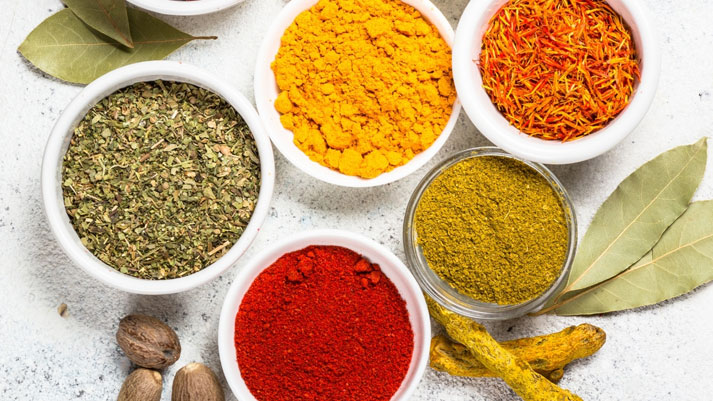Natural herbs and spices have long been celebrated for their ability to enhance the flavors of our meals and support our overall health. In particular, certain ingredients like garlic, ginger, turmeric, and echinacea have been recognized for their immune-boosting properties. By incorporating these powerful herbs and spices into your daily routine, you can strengthen your body’s defenses and promote long-term health.
Turmeric, often referred to as “the golden root,” contains curcumin, a potent compound with antioxidant and anti-inflammatory properties. Research has shown that curcumin can enhance immune function by modulating immune cells, improving the body’s overall immune response. By incorporating turmeric into your diet through smoothies, soups, or golden milk, you can harness its natural anti-inflammatory and immune-boosting potential.
Ginger, another immune-boosting ingredient, contains gingerol, a key compound that helps reduce oxidative stress and stimulate the production of key immune cells. By adding fresh ginger to teas, stir-fries, or smoothies, you can benefit from its potent antioxidant and anti-inflammatory properties, which support a healthy immune system.
Garlic, known as “nature’s antibiotic,” is rich in allicin, a compound that boosts the immune response by stimulating immune cells and providing antimicrobial protection. Whether used raw, roasted, or sautéed, garlic can easily be incorporated into a variety of dishes to fortify your body’s defenses and support immune health.
Echinacea, a traditional immune booster, stimulates the production and activity of white blood cells, essential for defending the body against external threats. With anti-inflammatory and antioxidant effects, echinacea can help the immune system work more efficiently, potentially shortening the duration and severity of colds and respiratory issues. Whether taken as a tea, tincture, or supplement, echinacea is a powerful ally in maintaining immune health.
In addition to these key ingredients, other immune-boosting herbs and spices like cinnamon, clove, oregano, and rosemary offer antioxidants and anti-inflammatory benefits that further support your body’s defenses. By incorporating a variety of natural ingredients into your meals and wellness routine, you can take proactive steps toward bolstering your immunity and promoting overall health.
For those looking to keep their immune system strong, embracing the power of natural herbs and spices is a simple yet impactful way to support your body’s defenses. By incorporating ingredients like turmeric, ginger, garlic, and echinacea into your daily routine, you can boost your immunity and promote long-term wellness. Explore the benefits of these immune-boosting ingredients and discover a new approach to supporting your body’s natural defenses.
Understanding the Importance of Blood Pressure Control
The Significance of Blood Pressure Management
High blood pressure, also known as hypertension, is a common condition that affects millions of people worldwide. If left untreated, it can lead to serious health complications such as heart disease, stroke, and kidney failure. Therefore, it is crucial to understand the importance of blood pressure control and take proactive measures to manage this condition effectively.
Key Points from CD000530 Study
The study referenced in CD000530 highlights the effectiveness of various interventions in controlling blood pressure. These interventions include lifestyle modifications, such as adopting a healthy diet and engaging in regular physical activity, as well as medication management for those with hypertension.
Furthermore, the study emphasizes the importance of regular monitoring of blood pressure levels to ensure that they are within a healthy range. This can help individuals and healthcare providers track progress and make necessary adjustments to treatment plans as needed.
Implementing Strategies for Blood Pressure Control
Based on the findings of CD000530, it is clear that a multi-faceted approach is necessary for effective blood pressure control. This includes making lifestyle changes, such as reducing salt intake, maintaining a healthy weight, and avoiding tobacco and excessive alcohol consumption.
In addition to lifestyle modifications, medication management may be necessary for individuals with hypertension. It is essential to work closely with healthcare providers to determine the most appropriate treatment plan based on individual needs and risk factors.
Conclusion
Overall, the study highlighted in CD000530 underscores the importance of blood pressure control in preventing serious health complications. By implementing a comprehensive approach that includes lifestyle modifications and medication management, individuals can effectively manage their blood pressure and reduce their risk of developing cardiovascular diseases.
It is crucial for individuals to prioritize their cardiovascular health and take proactive steps to control their blood pressure. By working closely with healthcare providers and following recommended guidelines, individuals can achieve optimal blood pressure levels and improve their overall well-being.


